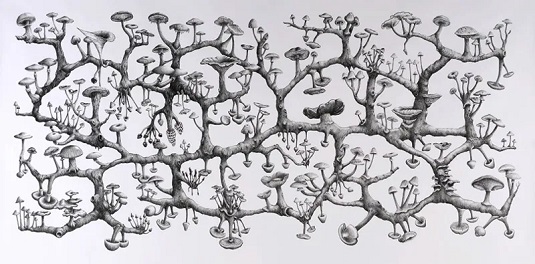
Gobbledegook? Not in the slightest. Consider the academic discipline of political science and make a comparison between its assumption of politics and actually-existing politics. The objects of analysis are political parties, their electoral performance, their relationships with one another (privileging coalition and blackmail potentials), how electoral systems work, strategies and manifestos, memberships, etc. In the analytical world they inhabit, all of these things are removed from the real world forces that assemble and constitute them and are entirely repurposed in a conceptual ensemble that not only distorts politics as it appears in political science, but is the prism through which actual politics are written about and understood, even to the point of providing normative models for political activity. That one has to step outside political science so conceived to understand power relationships, the dynamics impinging in and constituting parties, how politics works outside of formal political systems through social movements and subterranean shifts in mood and opinion is demonstrative of Deleuze and Guattari's point. Oppose what I call militant political science which treats politics and its elements in its multiplicity to the stilted formalism of political science, and it's like comparing day to night. Except the more expansive militant variety is concerned with breaking politics, whereas its academic nemesis is content to commit violence to real dynamics and flows to uphold its intimate relationship with the power it refuses to recognise.
Image Credit
No comments:
Post a Comment